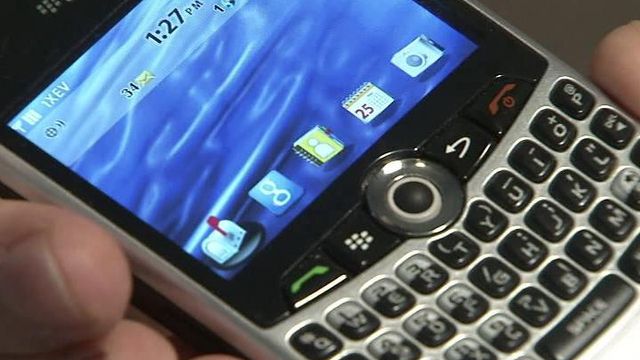Security expert: Spam text messages 'a rampant criminal enterprise'
When was the last time you actually looked at your cellphone bill? You might want to. WRAL's 5 On Your Side is hearing more complaints from viewers getting spam text messages and then being charged for them. Many cell customers don't even realize they're paying the fees.
Posted — UpdatedThis involves what's known as "cramming," which started out as a problem with landlines and is now hitting wireless customers. It's where you get slapped with a data charge of anywhere from $1 to $10 a month, so many people don't notice.
With texting and data plans so popular right now, many people don't even notice the charges. The worst part is you can be charged even though you've never signed up for any of the services.
Brandon Lopes describes himself as a "serial texter." He says he probably sends "a couple hundred" texts each day.
Kendall Bougouneau says "texting replaced most of my talking." He says he sends about 50 a day.
It's a quick and easy way to communicate and a quick and easy way for scammers to make money. Jimmy Connell found out the hard way.
"(I) just happened to notice my phone bill, because a person in my office said it had shown up on hers," Connell said.
What showed up was a charge for a third-party text messaging service.
"This one says, 'IQ tower, welcome to trivia alerts,'" Connell said.
One text alerted him that some species of fish have voices – "something I didn't need to know," Connell said.
Considering he's a realtor and his phone is pretty much his office, incurring regular data charges – including the $9.99 fraudulent fee he was charged – was low enough for Connell to miss.
"(I) guess they do it where it's in that fine line if you were to have a $30 charge, you may notice something," Connell said. "But, if it's $10, with all the fees that are on a bill, it's hard to figure out what you really are paying for."
"This is a rampant criminal enterprise," said Ben Levitan, a cellphone security expert. He says scammers target people who haven't set up an online account with their cellphone provider.
"If you don't set up your account, a criminal can go set up your account," Levitan said.
Levitan says they pick an area code and a carrier and just start trying numbers.
"(They) just start doing 1234, 1235?" asked 5 On Your Side's Monica Laliberte.
"Exactly!" Levitan said. "And I'm going to find, out of 10,000 people, 60 to 70 percent probably haven't set up their online account."
In fact, within minutes of going through his personal contact list, Levitan found a friend who didn't have an account. Levitan registered and accessed the account.
"(The) first thing I can do is go change his password," Levitan said. He could then use the account to buy accessories and apps.
"(Or,) if I've set up a company that's selling games, or a joke of the day or a horoscope, I can start buying those from my own company, and they're going to be charged to you," Levitan said.
Scammers also get info from websites we visit, especially when we provide an email address or phone number. Often, the fine print notes the site has a right to sell your information. So, how do you stop it?
First, set up a password-protected account with your provider. Then, "poison the databases," according to Levitan. By that, he means when you sign up for something, "doctor" the personal information. "They'll ask me my birthday. I'll lie," he said.
When you receive one of the spam text messages, don't just delete it. Levitan says reply "quit," "stop" or "cancel" and immediately call your provider.
Also, many carriers offer a free service that automatically blocks third-party charges.
So, why don't cellphone companies just block the services and charges and require customers to sign up and approve a charge? The companies say because there are many legitimate texting service companies that offer services people want, such as stock figures and sports scores.
Cell providers are aggressively fighting spam texts. Many companies now send you a text that allows you to verify and approve a purchase and the charge. It's all in an effort to keep you from having to decipher whether you're being erroneously billed for text messages you don't want.
• Credits
Copyright 2024 by Capitol Broadcasting Company. All rights reserved. This material may not be published, broadcast, rewritten or redistributed.





